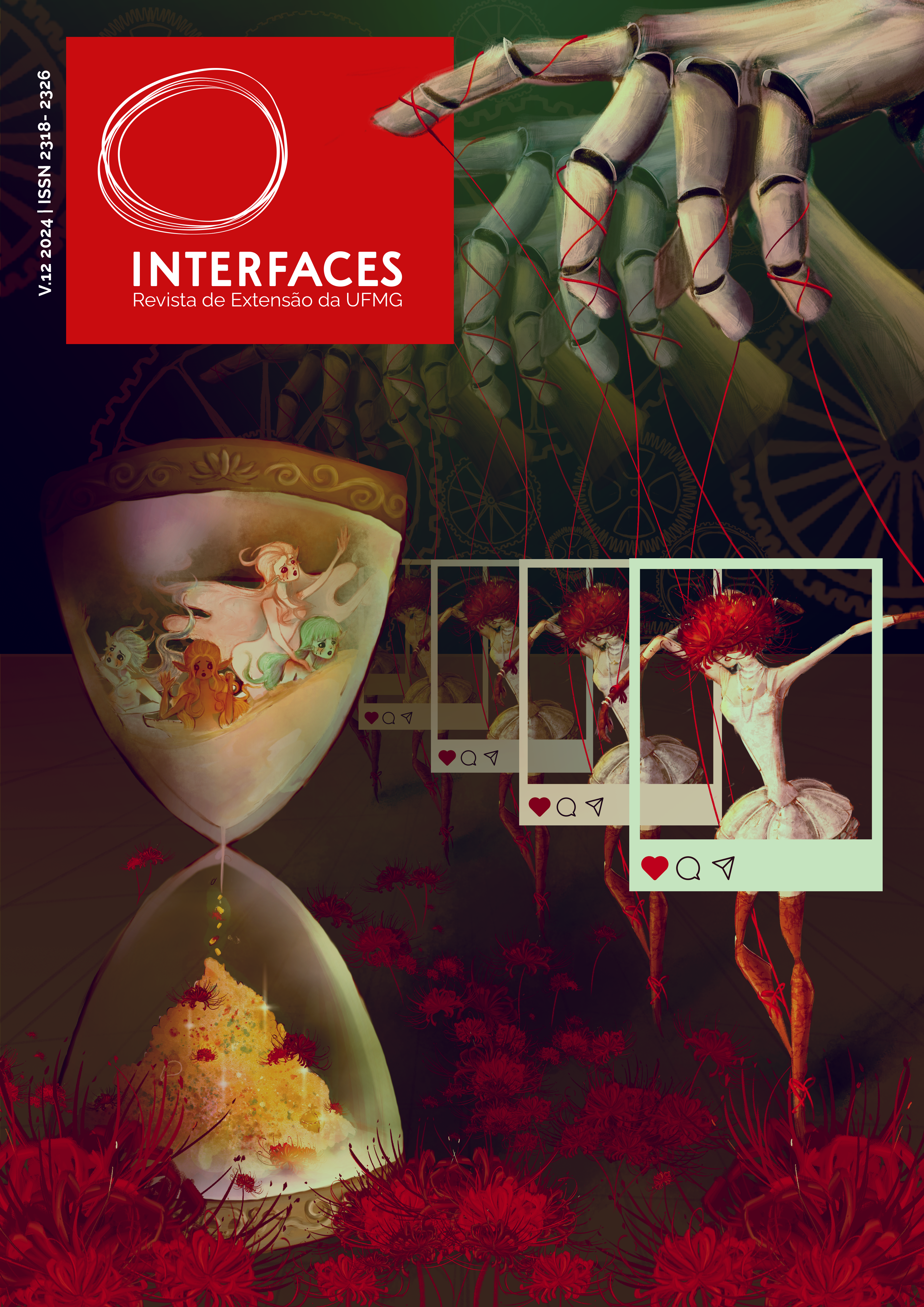TRABALHANDO COM JOGOS COMO FERRAMENTA DE METODOLOGIAS ATIVAS
Uma ação de extensão do Programa Aproxime-se em polos de educação a distância em Minas Gerais
DOI:
https://doi.org/10.35699/2318-2326.2024.45857Keywords:
Extensão, Metodologias ativas, GamificaçãoAbstract
Aproxime-se is an extension program of the Centro de Apoio à Educação a Distância (CAED) of the Universidade Federal de Minas Gerias (UFMG) which, since 2013, provides educational activities that contribute to each UFMG partner distance education center in Minas Gerais become an active space for encounters between academic and local knowledge. The objective of this work is to present the university extension actions carried out by Aproxime-se in the hub cities of the Universidade Aberta do Brasil (UAB) of Sabará/MG and Jaboticatubas/MG in 2022. The theme chosen was “Reflections on Active Methodologies in Basic Education: Gamification in the Classroom”. Based on studies and readings of scientific articles and bibliography suggested by the program's coordination, an event was held in which, through a round table discussion and workshops, these contents were disseminated and discussed with the pole's community, consisting mainly by Basic Education teachers. The event was a moment of interaction between the local community and the university, in which the team involved and the participants of the event realized that the content discussed provided a better understanding of active methodologies, encouraging the community to have contact with non-traditional practices of teaching and learning.
References
Alves, L.; Bianchin, M. (2010) O jogo como recurso de aprendizagem. Revista Psicopedagógica, 27(83), 282-287. https://www.revistapsicopedagogia.com.br/detalhes/210/o-jogo-como-recurso-de-aprendizagem.
Bacich, L., & Moran, J. (2018). Metodologias ativas para uma educação inovadora: uma abordagem teórico-prática. Porto Alegre: Penso, 2018.
Berbel, N. A. N. (2012). As metodologias ativas e a promoção da autonomia de estudantes. Semina: Ciências Sociais e Humanas, 32(1), 25–40. https://ojs.uel.br/revistas/uel/index.php/seminasoc/article/view/10326/0.
Castells, M. (1999). A sociedade em rede (1st ed.). São Paulo: Paz e Terra.
COMITÊ GESTOR DA INTERNET NO BRASIL (CGI.br). (2021). Pesquisa sobre o uso das tecnologias de informação e comunicação nos domicílios brasileiros: Pesquisa TIC Domicílios: Relatório metodológico. São Paulo: CGI.br.
Dewey, J. (2002). A escola e a sociedade. A criança e o currículo. Lisboa: Relógio D’ água.
Diesel, A., Santos Baldez, A. L., & Neumann Martins, S. (2017). Os princípios das metodologias ativas de ensino: uma abordagem teórica. Revista Thema, 14(1), 268–288. https://periodicos.ifsul.edu.br/index.php/thema/article/view/404.
Freire, P. (1987). Pedagogia do oprimido (17th ed.). Rio de Janeiro: Paz e Terra.
Huizinga, J. (2010). Homo Ludens: o jogo como elemento da cultura (6th ed.). São Paulo: Perspectiva.
Kolb, D. A. (1984). Experiential Learning: Experience as the Source of Learning and Development. (1sted.) Journal of Business Ethics.
Muntean, C. I. (2011). Raising engagement in e-learning through gamification. International Conference on Virtual Learning ICVL, (6), 323-329.
Nunes, A. L. d. P. F., & Da Cruz E Silva, M. B. (2011). A extensão universitária no ensino superior e a sociedade. Mal-Estar e Sociedade, 4(7), 119-133.


